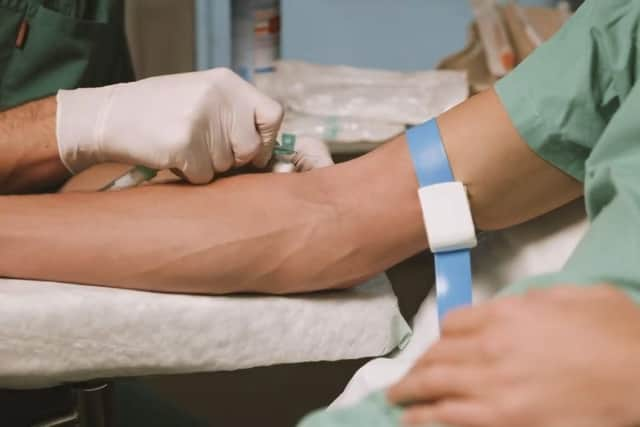Mid-Yorkshire Hospitals announces move to reusable tourniquets to reduce waste and save £20,000
and live on Freeview channel 276
Annual figures from the trust showed 330,000 disposable tourniquets, which determine the location of a suitable vein on a patient for drawing blood, are used each year – costing money and adding to the trust’s disposable waste.
At the start of 2022, a review of tourniquet usage across the trust began to identify a reusable alternative.
Advertisement
Hide AdAdvertisement
Hide AdFollowing the assessment of a variety of samples, the Daisygrip reusable tourniquet was approved for trial at the trust’s hospitals (Pinderfields, Dewsbury District and Pontefract).


After receiving positive feedback, trials were then extended, leading to the introduction of the tourniquet throughout various departments.
Since the introduction of reusable tourniquets, the trust says it has seen a reduction in plastic waste, procurement savings of £20,000 and a substantial reduction in the number of single use tourniquets used.
Peter Leighton-Jones, head of sustainability, said: “It’s clear that there has been a gravitation towards disposable, single use items in the NHS over recent years.
Advertisement
Hide AdAdvertisement
Hide Ad“The time has now come to redress the balance and move towards a more circular style of healthcare, where items can be reused depending on the products in question, where it’s safe to do so from a health provision and infection risk perspective.
“It’s extremely positive that this latest initiative is moving us back in the direction of resource circularity and, in doing so, is saving money, reducing carbon emissions and avoiding needless waste.”